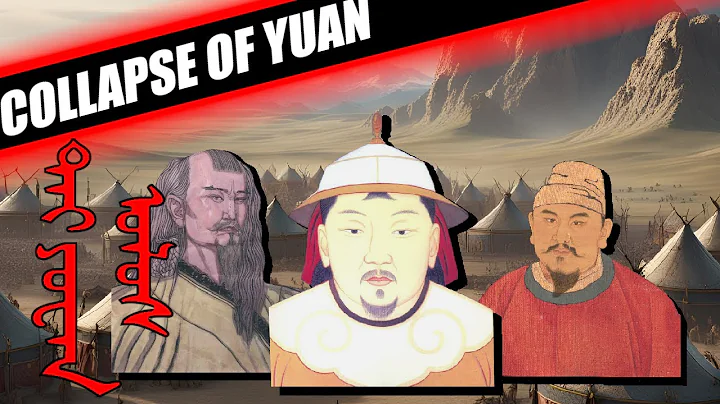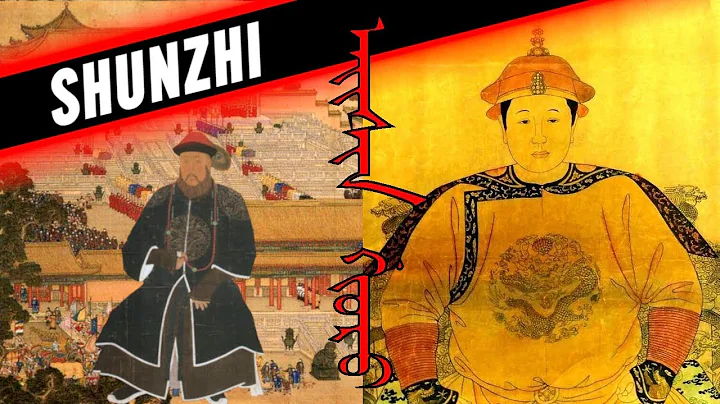On March 18, the seventeenth year of Chongzhen (1644), Li Zicheng led a peasant uprising army to capture Beijing. Emperor Chongzhen had no way to escape, and finally hanged himself on a coal mountain behind the Forbidden City . The Ming Dynasty, which had stood for more than two hundred years, perished.
In fact, for Emperor Chongzhen, there was still a way to give up the endangered Beijing and move the capital to Nanjing to establish a provisional regime. This method may still be able to save half of the country in Jiangnan, and and in the Ming Dynasty may not perish so quickly. However, Chongzhen has not moved south for a long time. Not only did he give up a way of life, but he also personally ruined the Ming Dynasty. He was also desperate.
So, why did Emperor Chongzhen refuse to move south? Did he really not want to move south?

This proposal to move the capital was first proposed by Li Mingrui, a Jiangxi official and Hanlin scholar, during a private summons in Dezheng Hall. of.
When Chongzhen asked about future strategies, Li Mingrui's answer was quite frank, and he even had no scruples when it came to the defeat of the north. He said that the rebel army was approaching the capital and the imperial court was in a "critical period of survival". The only wise choice was to move the capital to Nanjing.
However, Emperor Chong was hesitant about this: in the face of foreign troubles, if he abandoned his territory and defended the capital, he would be guilty of losing his country through the ages; in the face of internal troubles, if he sat idle and waited for death, he would suffer the great humiliation of losing power to the invaders.
This dilemma made him hesitant. He wanted to be a saint king who would go down in history, and he simply could not bear the crime of losing his land and country.
So he brought this issue to the ministers for discussion, hoping that the ministers would formally submit a request to move south, and then he would follow the trend and make a statement so as not to bear historical responsibility.
However, the ministers around Chongzhen were all cunning and cunning, and no one stood up to express their position! Since he could not get the answer he wanted from them, Chongzhen finally had to decide to "make a decision at the court early." The courtiers in the court started a heated argument with each other, and ended up in a stalemate and finally broke up unhappy.
Emperor Chongzhen himself was unwilling to bear the serious sin of abandoning the ancestral temple and the country, so this strategy was put aside.
Are those ministers who advocate never abandoning their country really loyal ministers who say they will die to serve the country? The answer is: not entirely! Most of them believe that if they declare that they will not abandon their country, they will escape the crime of losing their country in the future. Instead of openly opposing "abandoning the land to defend the capital", they followed the thoughts of Emperor Chongzhen. They thought that even if one day the accounts were settled after autumn, this willful and narrow-minded emperor would definitely find a scapegoat for losing his country in order to absolve himself of his guilt. They themselves You can also protect yourself wisely.
With such a group of mediocre ministers who are full of personal agendas, plus an indecisive emperor who only cares about fame, how can the country survive?
In early March, Li Zicheng conquered Ningwu with overwhelming force. The Ming army was completely defeated and the capital was in danger.
Chongzhen summoned ministers overnight to discuss countermeasures. Someone suggested that the emperor should guard the capital and let the prince go to the south of the Yangtze River. Chongzhen suddenly became furious: "I have been running the world for more than ten years and still can't save it. What big things have the children's family done?"
In fact, everyone Everyone understood that the emperor himself wanted to flee south, but he insisted on telling the ministers to tell him to save face. What's ridiculous is that he still couldn't tell the reason. In the end, he just issued an imperial edict to "come to Beijing to serve as king" and waited for the armies from all walks of life to come to Beijing to escort him.
However, King Qin's army did not arrive, but urgent memorials came like snow flakes. At this time, Li Mingrui came again to ask for an urgent meeting, urging Chongzhen to move south.
Chongzhen summoned the ministers again, hoping that everyone would ask him to move south, but this time he was disappointed again. The ministers were all silent and refused to speak. During the stalemate, a messenger from the front came to report that " Baoding has fallen." .
At this time, Emperor Chongzhen couldn't help but sit there, unable to say a word, and two lines of tears were already shed - the road to the south was cut off, and the proposal to move south had come to nothing.
Finally, Li Zicheng led a peasant uprising army to invade Beijing on March 18, 1644. Emperor Chongzhen had no way to escape and hanged himself. The Ming Dynasty, which had lasted for more than two hundred years, was destroyed.





















